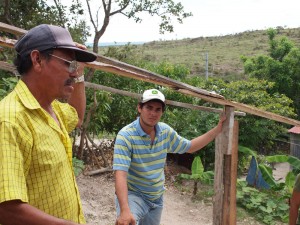Creating change through transforming young leaders
In recent years, the word “change” echoed in many sectors of society globally. Both citizens and institutions have shown in myriad ways their dissatisfaction with the way they live. For many, the status quo—whether economic, social or environmental—has stopped working.
How can we create the truly meaningful change needed to construct a just and prosperous society? This is a question that many of us have asked ourselves.
Twenty-two years ago, EARTH found a very particular way to create change. Instead of trying to find political and economic solutions, it decided to bet on a factor uniquely capable of generating change: young leaders.
EARTH brings opportunities to youth with leadership potential—who in their ordinary circumstances may never have been able to fully develop that capacity—by offering them a supportive environment in which to thrive. This talented group is EARTH`s hope to create lasting change.
After two years of scientific and technical training in an ideal environment—with all the facilities that the University provides—students spend seven weeks at EARTH-La Flor in Liberia, Guanacaste, where they engage directly in “real-world” situations. In 2004, the family of former president of Costa Rica, Daniel Oduber, decided to support EARTH by donating their 3,900-acre “Hacienda La Flor”—a gift inspired by the family’s faith in the Institution. Today, the property has transformed into a place where students put their knowledge into practice to foster sustainable development in the region.
This academic module consists of two parts: First, students must work in a company, where they apply their knowledge and willingness to learn by performing a specific task. For example, they could develop a ecological landscaping project using peri-urban agriculture techniques, or help EARTH-La Flor’s rice production business implement its sustainable cultivation techniques.
 Second, as part of the University’s community development program, students work with communities facing great social and economic hardships, collaborating with them to create projects that address those needs—resulting in a win-win relationship for all involved.
Second, as part of the University’s community development program, students work with communities facing great social and economic hardships, collaborating with them to create projects that address those needs—resulting in a win-win relationship for all involved.
The story of the “Matina Bustos” community of Liberia is an example of the students’ positive impact. The majority of community members are immigrants with high levels of illiteracy. Their situation deprives them of basic services like drinking water. In addition, the lack of jobs in the area, forces them to work looking for things in the garbage dump to resale.
Beyond sharing their technical expertise with the community—through implementating peri-urban agricultural production to grow lettuce and celery—EARTH students also offer social support to the people they serve, providing hope, dreams and joy, a change that produces change in their lives.
The Matina Bustos’ community’s new food production capacity will allow it to generate income, as it will sell its crops to four restaurants in Liberia. The growers’ future looks promising now; this is beginning of a new reality for the them. The opportunity will let them break the cycle of poverty; their children will be able to go to school instead of going to work. The effect will multiply.
This is one of the educational methods EARTH believes in to change the world: by transforming the life of one person at a time—and inspiring that person to lead others by sharing knowledge—we can achieve the goal of an equitable society.
Change that creates change in people, that EARTH’s secret.
We’d love to hear how you’re creating change in the lives of those around you, and you are welcome to visit our Facebook page (www.facebook.com/EARTHUniversity) to share your story.




